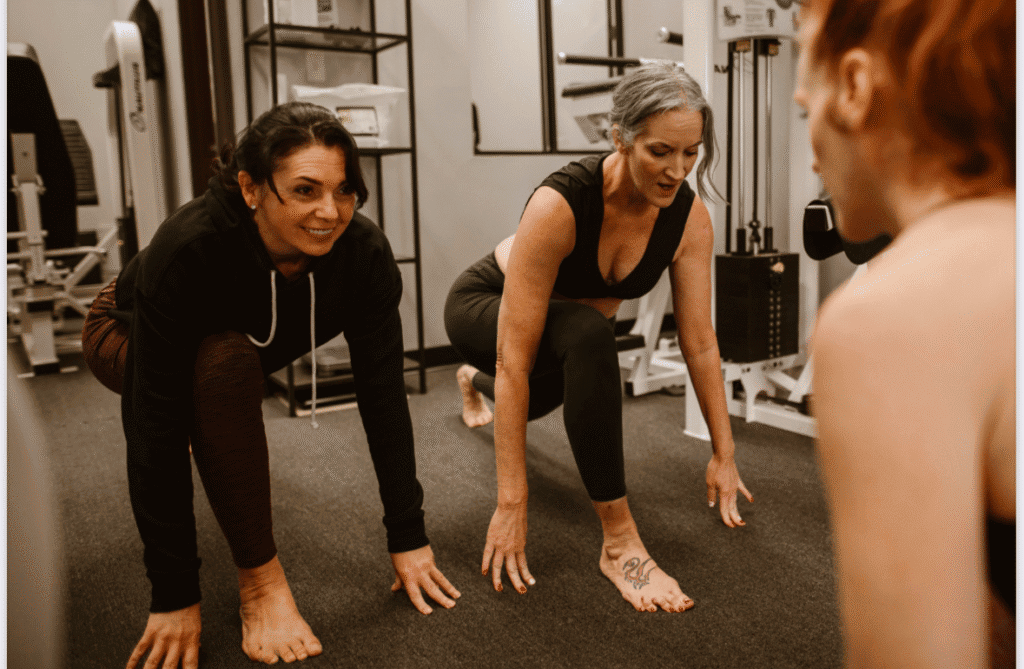Hot Flashes and Hope: Finding Menopause Relief Without Hormones
Menopause and Nutrition: How Diet Impacts Symptoms and Long-Term Health
The Role of Exercise in Menopause: Benefits, Best Workouts, and Tips
Hormone Replacement Therapy (HRT) in Menopause: Benefits and Risks
Understanding Menopause: A Comprehensive Guide
Embrace Menopause: Insights & Tips for a Smooth Journey. Menopause is a significant phase in a woman’s life, marking the end of her reproductive years. It can bring about various physical, emotional, and psychological changes. Understanding these changes is crucial for navigating this transition smoothly. In this article, we will explore common symptoms of menopause, effective coping strategies, and valuable tips to embrace this new chapter with grace and confidence.
During menopause, women may experience symptoms such as hot flashes, night sweats, mood swings, and changes in libido. These symptoms can vary in intensity and duration from person to person. For instance, hot flashes are often described as sudden feelings of warmth that spread through the body, sometimes accompanied by sweating and reddening of the skin. Understanding what triggers these symptoms—such as stressful situations, spicy foods, or caffeine—can help in managing them effectively.
One important aspect of managing menopause is understanding the role of hormones in this transition. Hormonal changes, particularly the decrease in estrogen levels, can impact various bodily functions. It may help to educate yourself on how these hormonal shifts affect mood, skin elasticity, and even heart health. For example, lower estrogen levels can lead to a decrease in collagen production, affecting skin firmness. Therefore, incorporating skin care products rich in hyaluronic acid or collagen can be beneficial.
Additionally, it is crucial to talk to your healthcare provider about hormone replacement therapy (HRT). HRT can be effective in alleviating severe menopausal symptoms. It is vital to weigh the pros and cons with your doctor, considering personal health history and preferences. Some women find that HRT significantly improves their quality of life, while others prefer natural remedies. There is no one-size-fits-all approach, so it is essential to find what works best for you.
Another key area to focus on is the importance of regular health screenings during menopause. Women should not skip annual check-ups, including mammograms and bone density tests. As menopause can increase the risk of osteoporosis, being proactive about bone health is critical. Engaging in weight-bearing exercises, such as walking or strength training, can strengthen bones and reduce fracture risk.
As you navigate this transition, consider exploring the emotional aspects of menopause as well. Journaling can be a powerful tool to process feelings and track symptoms. Writing about your experiences may provide insights into patterns and triggers, allowing you to develop coping strategies. Many women find that creative outlets, such as art or music, also help them express their emotions during this time.
Lastly, connecting with a mental health professional can be incredibly beneficial, especially if you feel overwhelmed by the changes you are experiencing. Therapy can provide a safe space to explore feelings regarding aging, identity, and self-worth. It can also offer tools to manage anxiety or depression that may arise during menopause.
In summary, embracing menopause involves a multifaceted approach that includes understanding hormonal changes, considering HRT, maintaining regular health screenings, and prioritizing emotional well-being. With the right strategies and support, this journey can be a time of empowerment and growth.
Moreover, it is essential to maintain a healthy lifestyle during this period. Regular physical activity can alleviate some symptoms and improve overall well-being. For example, engaging in yoga or tai chi not only helps with flexibility and strength but can also reduce stress levels. Additionally, staying hydrated and maintaining a balanced diet rich in calcium and vitamin D can support bone health, which is crucial as women approach menopause.
Emotional well-being is another important aspect to consider. Many women report feelings of sadness or anxiety during menopause. Connecting with support groups, whether in-person or online, can provide comfort and a sense of community. Sharing experiences with others facing similar challenges can lessen feelings of isolation and provide practical tips for coping.
Furthermore, alternative therapies such as acupuncture or herbal supplements may offer relief for some symptoms. However, it’s important to consult with a healthcare professional before trying these options. In addition to these strategies, mindfulness practices such as meditation can help manage stress and improve overall mental health.
As we navigate the emotional and physical changes of menopause, it is also a time for reflection and self-care. Embracing this transition can lead to personal growth and the opportunity to rediscover oneself beyond motherhood and career. Celebrating this new phase can involve setting new goals, exploring hobbies, or traveling to places you’ve always wanted to visit. Each woman’s journey is unique, and it’s vital to honor your feelings and experiences during this time.
In conclusion, menopause is a natural stage of life that can be embraced with the right knowledge and support. By understanding the changes occurring in your body and mind, adopting healthy habits, and seeking support from others, you can navigate this journey with confidence and grace. Remember, it’s never too late to take charge of your health and well-being. Let’s embrace menopause together and look forward to this exciting new chapter!





